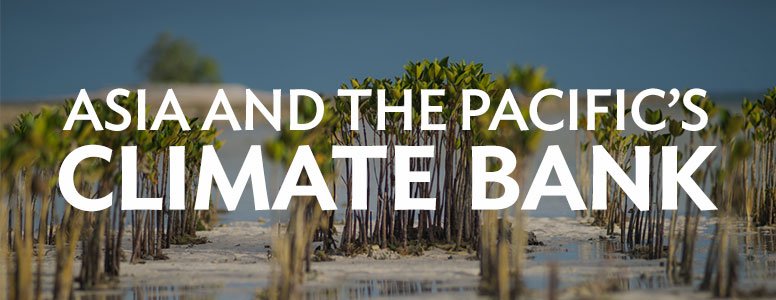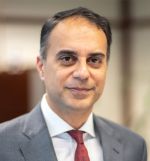Keynote address by Ahmed M. Saeed, ADB Vice-President, Operations 2, at the Ministerial Dialogue on Regional Energy Transition Outlooks: Southeast Asia Energy Transitions at the IRENA Assembly, 15 January 2023
Thank you, Francesco La Camera, Minister Arifin Tasrif, and Minister R.K. Singh.
It is an honor to be here for this ministerial dialogue and I appreciate the opportunity to share some thoughts with this group. I could not ask to be in better company.
Francesco, thank you for your leadership of IRENA. We should all be grateful for the role this organization is playing. I have come to have great respect for your organization’s analytical work. The Renewable Energy Outlook for ASEAN is again proof that IRENA is willing to tackle complex, dynamic problems with a distinctive, thoughtful, well-informed and incisive voice.
I want also to congratulate you, Pak Arifin, and the Government of Indonesia for an enormously successful G20 Presidency, one where you demonstrated clearly that international cooperation has a future, and one in which Indonesia made clear that its commitment to an accelerated, strong and responsible energy transition will be focused and will lead to real action on the ground. ADB takes great pride in the work we did with you and your staff through the Energy Transition Mechanism Focus Group Discussions over the course of 2022.
I would be remiss if I failed to acknowledge ADB’s many friends from ASEAN. It is a privilege to be with you today, and to be your partner as well as a longstanding supporter to ASEAN in initiatives such as ASEAN Infrastructure Fund and the ASEAN Catalytic Green Facility.
Some places, some moments are more important than others. In my view, it is hard to overstate how important – how consequential – it is to be here today, in Abu Dhabi, host of COP28, for a discussion on the issue of energy transition and, specifically, in the company of senior ASEAN leaders in order to reflect on this transition in your region.
It is of course a truth widely acknowledged that climate change is an existential challenge and this fight will be won or lost in emerging markets and in Asia. Emerging markets already account for the vast majority of the total increase in anthropomorphic GHG emissions, and more than 50% of total emissions now come from Asia.
I would argue however, that if we zoom down to take a closer look at this battlefield, we would find that the decisive front is in fact in ASEAN. If Asia is to transition successfully, if emerging markets are to transition, then ASEAN must show the way, in creating models that can be adapted and replicated elsewhere in the developing world.
Getting this right is not easy work. It will demand more from all for us in this room: governments, regional organizations, international organizations and multilateral banks.
At ADB, we too, are trying to do our part. We are raising our ambition―with a new goal of $100 billion in total climate financing commitment by 2030 and we are working hard to test new initiatives and forms of collaboration across the public, private and philanthropic sectors.
I have taken three lessons from our own journey to date and, if you will permit me, I thought I will take this opportunity to share them in the hope they may also be useful for others:
First, we need to have a very clear-minded sense of what's really unique about our own organization. My anecdotal version of the strengths of ADB: first, we have deep, unique knowledge of certain subjects; second, we understand developing countries in Asia and know from decades of experience in working with them how to get things done in them; and third, which is the most important, is the power we – and organizations like IRENA as well - derive from our developing country members. We are trusted by you and have no agenda other than your welfare and progress.
A second lesson I have drawn, this clear sense of our own capabilities matters because without it, we cannot foster the creation of high impact partnerships. Addressing climate change will take a village – public sector, private sector, philanthropy, civil society. In order to build partnerships, we need to understand our strengths and embrace the idea of enabling others. The original idea for the energy transition mechanism, for example, was not ours, it came from a deeply committed and experienced executive in the financial services sector. And to make it real, it would require collaboration with Minister Arifin, public and private organizations, and philanthropies.
Effective partnerships cannot succeed without the uniquely powerful capabilities of governments and public sector organizations like those here today. To help partnerships succeed, the public sector must become more open architecture.
A final lesson I will share, one that I have drawn, is that pragmatism and a bias towards action are the order of the day. The solutions to complex dynamic problems are to be found in the field not in the lab. This sounds like a low brow notion, but it also has a high brow pedigree―it is in fact how AI and machine learning systems operate. Start with your best approximation of the right answer, implement, learn, iterate, and adapt, repeating this process over and over. In the VC community they call it getting to product market fit.
All of this will also demand getting comfortable with uncertainty and ambiguity, and it requires a bias towards action. Information has value but so, especially now, does time.
I believe that those of us gathered together in this room, playing to our respective strengths, are on the right path to tackling energy transition.
Please allow me to end on a final, hopeful note. Climate change, a threat that is driving the world and that discriminates against the weakest and most vulnerable, is also an unprecedented opportunity for us to work together and to come together. This historic challenge also represents the greatest opportunity to mobilize capital and ideas for emerging markets that we will ever see in our lifetimes. If we get this right, we, and in my view ASEAN, blazing the trail, have the opportunity will discover that that decarbonization is in fact another name for development.


